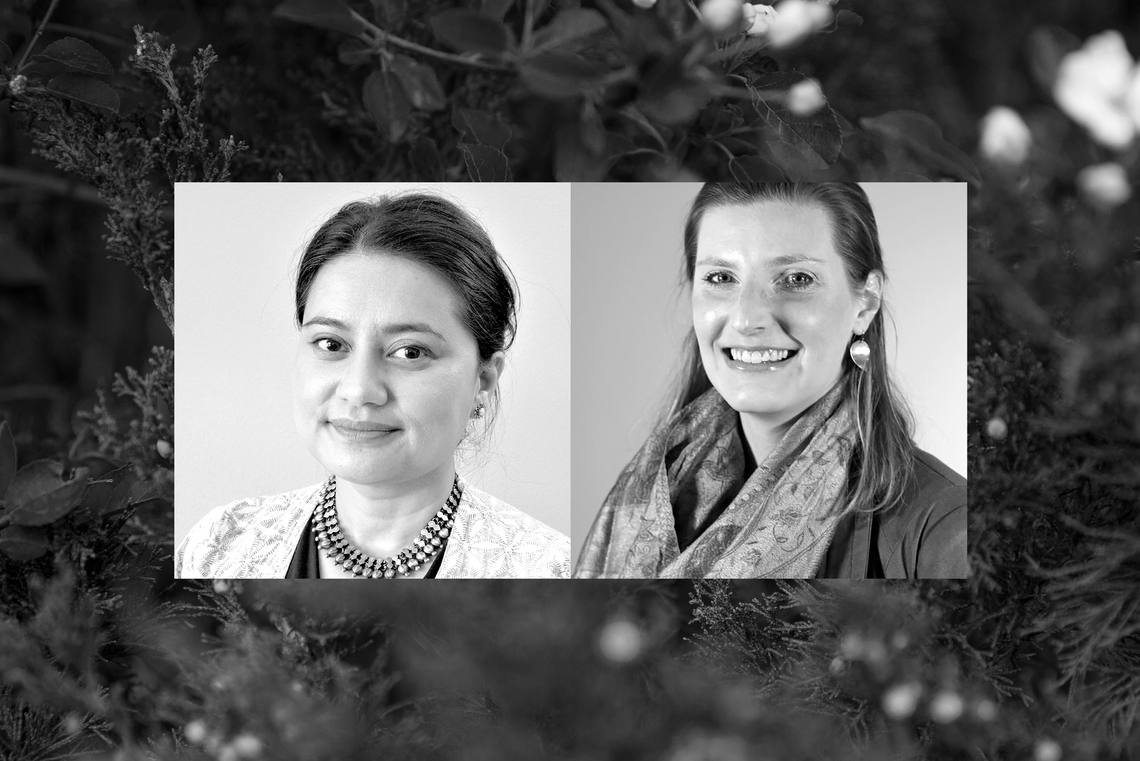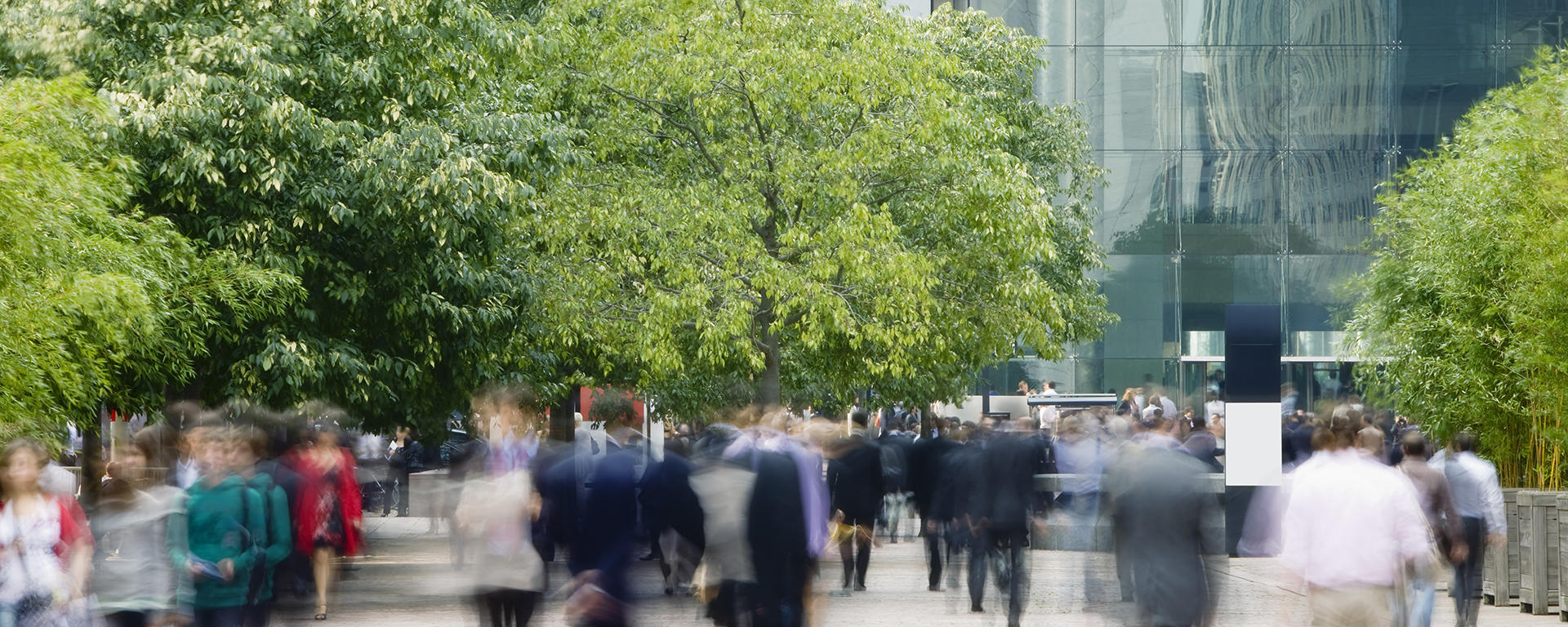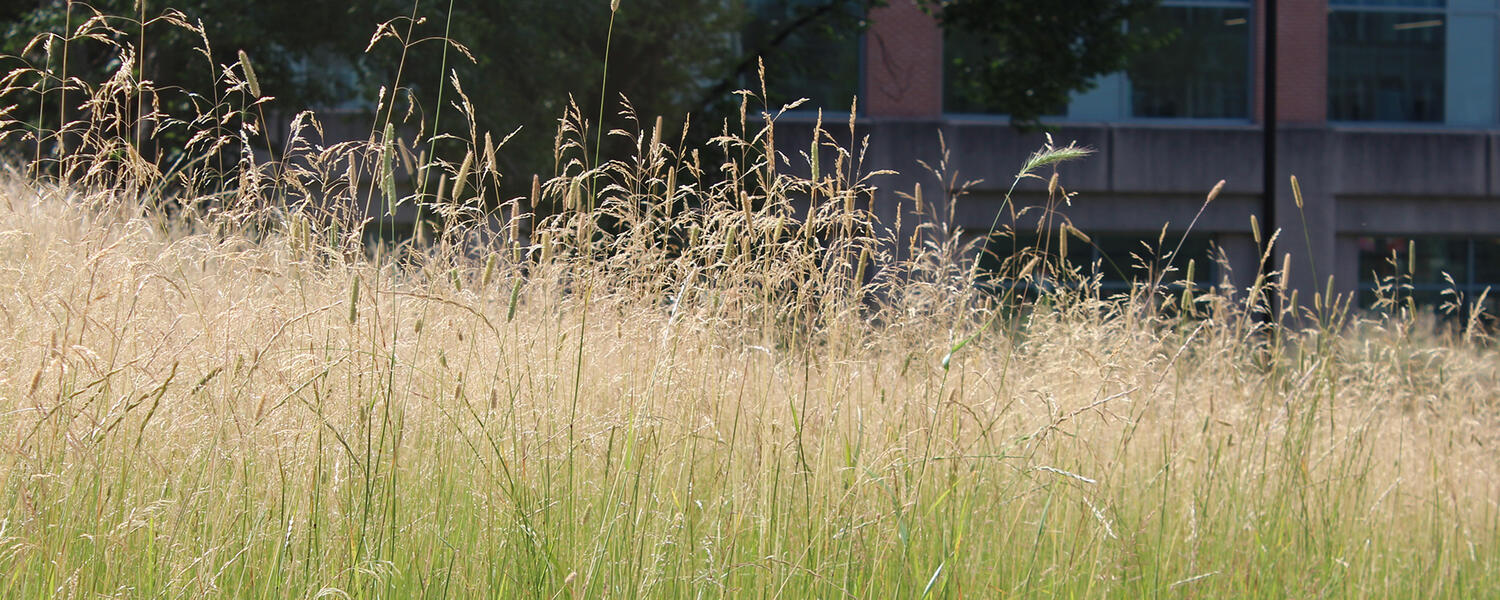Climate Conversations
Speaker series
Climate Conversations aims to engage the UCalgary campus community and Albertans in transformative conversations on climate action. By mobilizing climate change expertise from diverse perspectives and worldviews that are critical for implementing impactful and equitable climate solutions, this speaker series aspires to empower participants to take meaningful action in their own ways and to connect with the climate action community.
The theme for the 2023-24 speaker series is building reciprocal, healthy relationships with communities and nature. Conversations will discuss:
- interconnections of planetary, community and biodiversity health and the importance of reciprocal relationships with the planet from an Indigenous worldview
- explore the learnings from University of British Columbia’s Climate and Nature Emergency Catalyst Program and the role of educational institutions as change catalysts in society
We are honoured to host outstanding speakers who are leading the way in climate justice and transformative social change. We welcome you to join us for the Climate Conversations speaker series.
Upcoming events

Nurturing Emotional Resilience in the Era of Climate Change
Join UCalgary for a talk on climate change and emotional resilience with Dekila Chungyalpa, founder of the Loka Initiative, and Christine Wilson, PhD, with Centre for Healthy Minds at the University of Wisconsin-Madison. Chungyalpa and Wilson will discuss the emotional impacts climate change has had on various populations and present the latest research and knowledge around eco emotions. They will also cover strategies for emotional regulation and coping with grief, distress, and other challenging emotions related to climate change.
When: Wednesday, May 8, 12-1:30 p.m. MT
Where: Online via Zoom
The webinar will close with a brief Q&A and an activity for participants to help regulate their emotions.
Presented by UCalgary’s Campus Mental Health Strategy and the Office of Sustainability as part of Mental Health Week and the Climate Conversations Speaker Series.
Past events
Climate Conversations 2023-24 speaker series hosts its second keynote speaker, Dr. Vanessa Andreotti, Dean of Faculty of Education at the University of Victoria.
Dr. Andreotti shares with us key learnings from the Climate and Nature Emergency Catalyst Program, a transdisciplinary educational program at the University of British Columbia. This program brought together scholars, students, community partners and artists using an educational inquiry approach to engage with urgency, scale, complexity and the central causes/drivers of the climate and nature emergency. The program also examined the role of higher education institutions as change catalysts in society. Learn about the new approaches the cohort experimented with to address climate change, climate justice, and biodiversity loss both locally and globally, and discover new ways you and your community can contribute to addressing these urgent complex global challenges.
Speaker:
Dr. Vanessa Andreotti, was appointed the Dean of the Faculty of Education with the University of Victoria effectively in July 2023 with a mandate to advance decolonization, Indigenization, equity, justice and climate resilience efforts. Dr. Andreotti is a former Canada Research Chair in Race, Inequalities and Global Change and a former David Lam Chair in (critical) Multicultural Education. Dr. Andreotti has held academic positions in the UK, Republic of Ireland, Aotearoa/New Zealand and Finland. She has worked extensively across disciplines, sectors and communities problematizing and offering alternatives to common approaches to social change that reproduce simplistic solutions to complex problems, paternalistic relationships with historically and systemically marginalized communities and ethnocentric ideals of sustainability, equity, and justice. She is one of the co-founders of the Gesturing Towards Decolonial Futures, an Arts/Research Collective. Dr. Andreotti is also a member of the College of New Scholars of the Royal Society of Canada.
Moderator:
Melanie Kloetzel, MFA, PhD, is a settler performance maker, scholar and educator based in Treaty 7 territory (Moh’kinsstis/Calgary). Director of the dance theatre company kloetzel&co. and co-director of the art intervention collective TRAction that produces the Climate Art Web, Kloetzel has created films, events, workshops and encounters that have been shared in theatre spaces, alternative venues, spaces of public assembly, and online environments across four continents. Kloetzel is a professor of dance at the University of Calgary.
January 26, 2024 12–1:30 p.m.
The Climate Conversations 2023-24 speaker series brings you it’s first keynote speaker, Dr. Nicole Redvers ND, MPH Deninu K’ue First Nation, Associate Professor, Department of Epidemiology and Biostatistics, and Western Research Chair & Director, Indigenous Planetary Health.
Learn about the interconnections between planetary health, human health, and biodiversity, and the importance of reciprocal relationships with the planet from an Indigenous worldview. Increase your awareness and knowledge of the importance of Indigenous languages and knowledge systems to planetary and human health. We will discuss ways to support and advocate for the inclusion of Indigenous perspectives in planetary health at local, regional, and international levels. We will also learn how the campus community can implement planetary health principles and practices, and ways to support the leadership of Indigenous communities in this area.
Speaker:
Dr. Nicole Redvers, ND, MPH, is a member of the Deninu K’ue First Nation (NWT, Canada) and has worked with Indigenous patients, scholars, and communities around the globe her entire career. She is an Associate Professor, Western Research Chair, and Director of Indigenous Planetary Health at the Schulich School of Medicine & Dentistry at Western University. She has been actively involved at regional, national, and international levels promoting the inclusion of Indigenous perspectives in both human and planetary health research and practice. Dr. Redvers is the author of the trade paperback book titled, ‘The Science of the Sacred: Bridging Global Indigenous Medicine Systems and Modern Scientific Principles’.
Moderator:
Clark Svrcek, MD, CCFP, P.Eng., M.Eng., is a Family Physician at the South Health Campus Academic Teaching Clinic and a Clinical Assistant Professor in the Department of Family Medicine at the University of Calgary. His previous life as a civil/environmental engineer has informed his research and education interests in Planetary Health, the intersections of nature and the built environment, and how that all comes together in active, healthy communities.
Oct 24, 2023 12–1:30 p.m.
Mobilizing Alberta Climate Conversations speaker series brings you its second keynote panel session — Sharing Diverse Perspectives on Just Energy Transitions.
Explore what just energy transitions can look like from diverse perspectives, worldviews and Knowledge Systems. Panelists will discuss ways just energy transitions can support climate justice in Alberta and Canada, how they can influence climate policy, current challenges and solutions to implementing just energy transitions, and ways one can support just energy transitions.
Speakers:
Jacob Crane is a citizen of the Tsuut'ina Nation, Alberta, Canada. He is the Community Engagement Coordinator for Indigenous Climate Action, an Indigenous women-led organization dedicated to creating a world with sovereign and thriving Indigenous Peoples and cultures leading climate justice for all.
Dr. Julie Drolet, PhD, professor in the Faculty of Social Work at the University of Calgary and Project Director of Transforming the Field Education Landscape partnership. She leads an international social work research program to advance knowledge in the fields of social work and social development.
Dr. Jennifer Winter, MA'07, PhD'11, is an associate professor in the Department of Economics and the School of Public Policy, University of Calgary. Winter’s research evaluates climate policies and examines the effects of government regulation and policy on energy development and the associated consequences and trade-offs.
Moderator:
Sarah Winstanley, BSW'11, MSW'15, is an instructor in the Faculty of Social Work at the University of Calgary. She is a feminist social worker who specializes in community development and has spent a decade working with girls and women leaders in Calgary and across the UK.
Nov. 22, 2022 12:30–2 p.m.
Exploring the Intersections of Human Rights, Equity & Climate Change
Kicking-off the Mobilizing Climate Conversations Speaker Series with our first keynote panel session. We will discuss what climate justice means from diverse perspectives, worldviews and knowledge systems, and what it is to decolonize climate change dialogues. We will explore how tackling racism, discrimination and structural inequities are all essential to advancing climate justice, and share meaningful actions to support climate justice.
Speakers:
Dr. Deborah McGregor is the Canadian Research Chair in Indigenous Environmental Justice at Osgoode Hall Law School at York University. Her research focuses on Indigenous knowledge systems and their various applications in diverse contexts, including water and environmental governance, environmental justice, forest policy and management, and sustainable development.
Dr. Deb L. Morrison works at the intersection of justice, climate science, and learning. She is a climate and anti-oppression activist, scientist, learning scientist, educator, mother, locally elected official, and many other things besides. Deb works in research-practice-policy partnerships from local community to international scales.
Larissa Crawford is the founder and managing director of Future Ancestors with expertise in anti-racism, climate justice, race-based data collection, public policy and governance, restorative practices and conflict resolution, global development, youth engagement, Indigenous engagement and decolonization.
Oct. 25, 2022 12:30–2 p.m.
Learn from an amazing panel of artists and discover the ways artistic practices are making an impact in how we talk about climate change, implement climate action, and imagine a healthy future. Understand ways artistic practices can bring together diverse voices, stories and experiences to:
- support transformative conversations,
- support community,
- influence wider cultural conversations on climate change to advance climate justice, and
- empower people to take action.
Speakers:
Chantal Chagnon is a Cree/Métis singer, drummer, artist, storyteller, actor, educator, workshop facilitator, social justice advocate and activist with roots in Muskeg Lake Cree Nation, Saskatchewan. She shares Traditional Indigenous songs, stories, culture, history, arts, Indigenous Craftsmanship and teachings. A Two Spirit single mother of two boys and twin girls, Chagnon has been an activist for more than 25 years, advocating for marginalized voices, including Murdered and Missing Indigenous Women, Girls and Two Spirit (MMIWG2S), Women’s Rights, Racial Inequity and Environmental Initiatives. Chagnon is passionate about building awareness and sharing understanding of Indigenous culture, spirituality, social justice and political issues.
Alana Bartol (she/her), MFA, BFA, is an artist and educator working at the intersection of art and ecology. She creates individual and collaborative site-responsive artworks that examine our relationships with the earth, the elements, and what are colonially known as “natural resources”. In 2019 and 2021, Bartol was long-listed for Canada’s Sobey Art Award representing Prairies and North. Spanning video, performance, drawing, sculpture, photography, environmental and socially engaged art, her work has been presented in in Germany, Hong Kong, Belgium, Romania, Argentina, Turkey, Colombia, Mexico, United States of America, and throughout Canada. Of mixed-European ancestry, Bartol is a white settler Canadian based in Treaty 7 Territory in Mohkínstsis/Calgary, Alberta where she teaches at Alberta University of the Arts.
Nicole Martens (she/they), is an artist and educator of Grebo, Mennonite and Celtic heritage. They are the founder of Plein Air Outdoor Arts, a nature-based art program, and co-founder of The General Store, an ongoing performative installation questioning economics. Martens makes use of pedagogy to explore relationships within self, within community, and with the more-than-human world. She gratefully recognizes the people, flora, fauna, funga and elements of Treaty 7 as her adopted home.
Moderator:
Dr. Melanie Kloetzel, MFA, PhD, is a settler performance maker, scholar and educator based in Treaty 7 territory (Moh’kinsstis/Calgary). Director of the dance theatre company kloetzel&co. and co-director of the art intervention collective TRAction that produces the Climate Art Web, Kloetzel has created films, events, workshops and encounters that have been shared in theatre spaces, alternative venues, spaces of public assembly, and online environments across four continents. Kloetzel is a professor of dance at the University of Calgary.
March 8, 2023 3–4:30 p.m.
Join us to listen and learn from Melanie Goodchild sharing a presentation titled Niigani Miinigowiziiwin (We Give These Gifts to the Future). Goodchild will describe how to heal self and systems through a dibaajimowin (story), and about her apprenticeship with complexity anchored in the principle of gidinawendimin (we are all related). She will be discussing an Anishinaabe approach to systems thinking and complexity science.
This event is hosted in partnership with the Office of Indigenous Engagement's Indigenous Knowledge Lecture Series.
Speaker:
Melanie Goodchild is moose clan Anishinaabekwe (Ojibway woman) from Biigtigong Nishnaabeg and Ketegaunseebee First Nations in northern Ontario. She is a PhD candidate in Social & Ecological Sustainability at the University of Waterloo. Melanie is a systems thinking and complexity science scholar. She lives with her family in Baawaating (the place of the rapids) in Three Fires Confederacy territory, currently known as Sault Ste Marie. She is on faculty with the Wolf Willow Institute for Systems Learning, the Academy for Systems Change, and the Presencing Institute and teaches part-time at the University of Vermont.
April 4, 2023,12–1:30 p.m.



